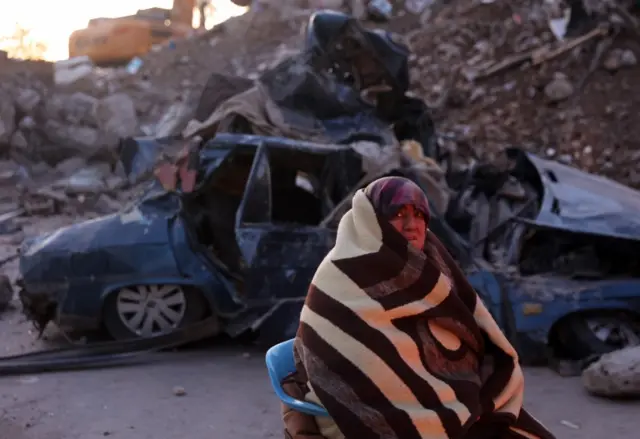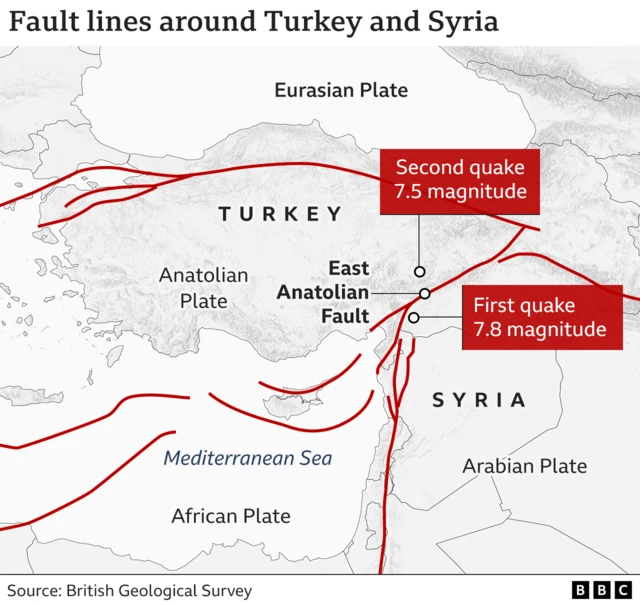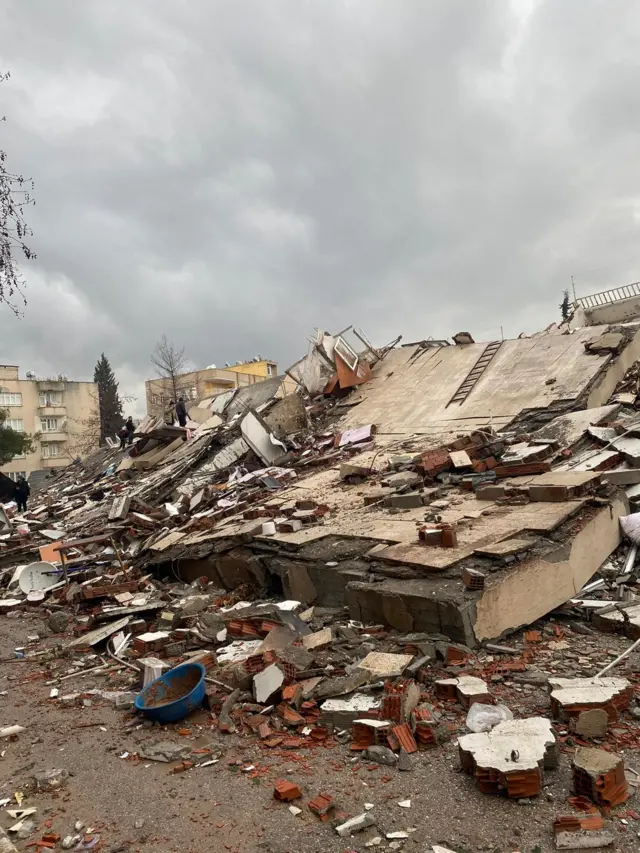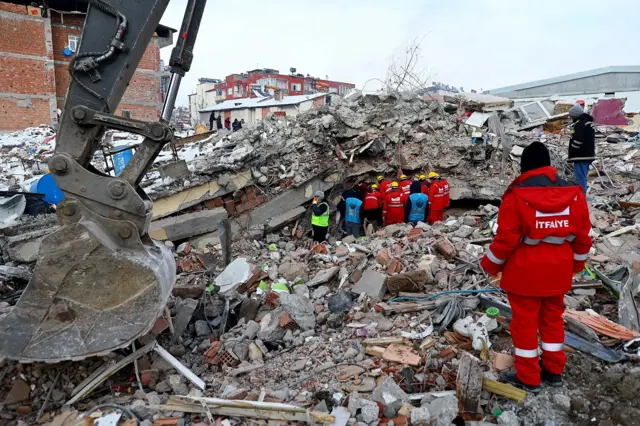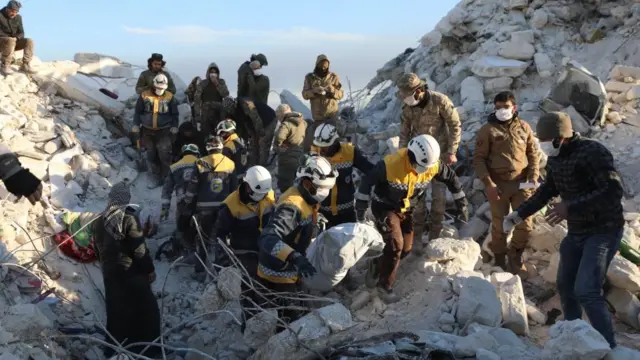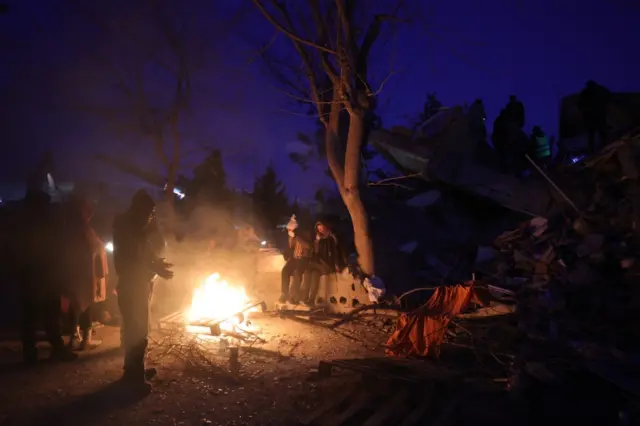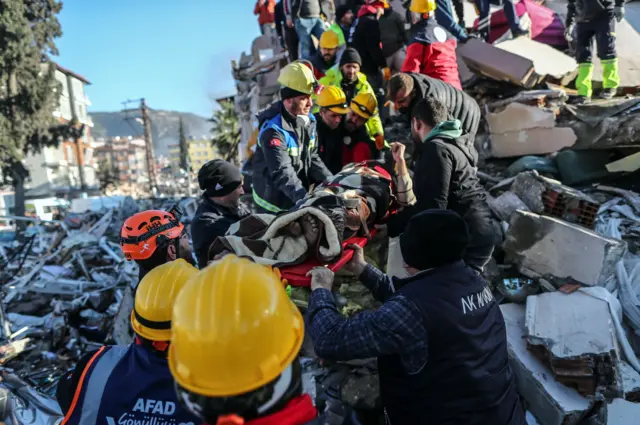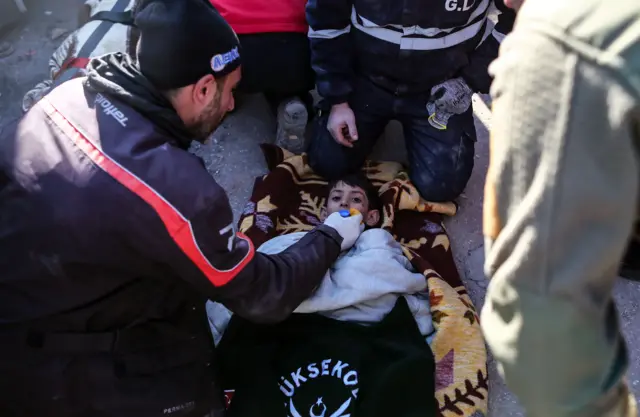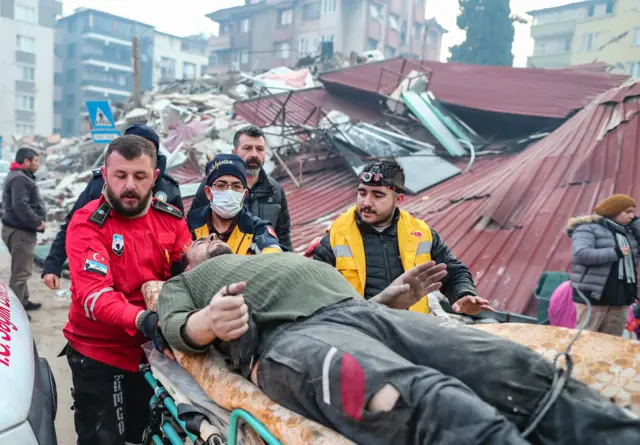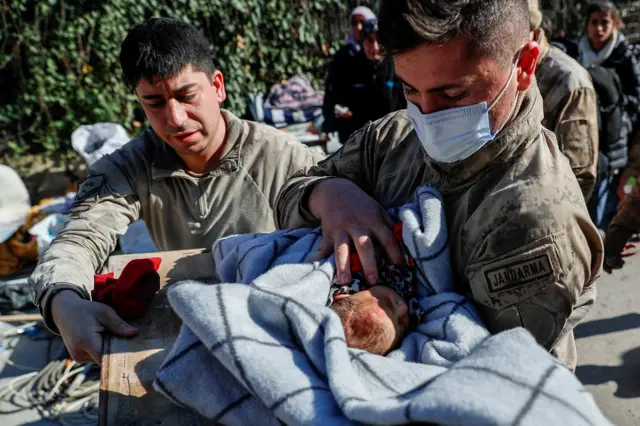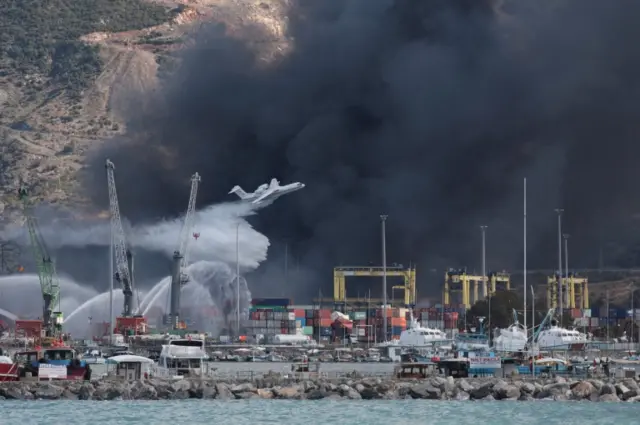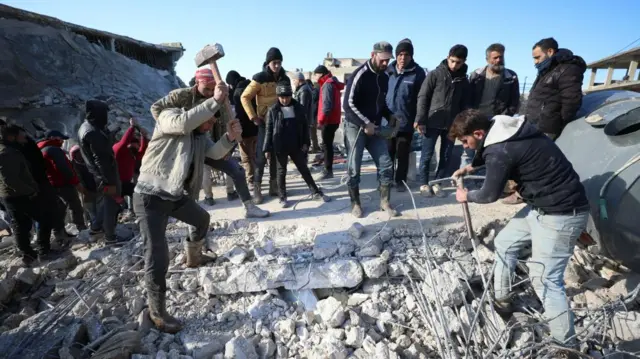We're pausing our coveragepublished at 22:59 GMT 8 February 2023
We're pausing our coverage of the aftermath of Monday's earthquakes, which claimed the lives of more than 12,000 people in Turkey and Syria.
Rescue efforts are still ongoing in both countries as survivors seek out food and shelter in tough conditions.
Our coverage today was edited by Sarah Fowler, Emma Owen, Marianna Brady and Victoria Lindrea.
It was written by Malu Cursino, Alys Davies, Christy Cooney, Sean Seddon and Aoife Walsh.
